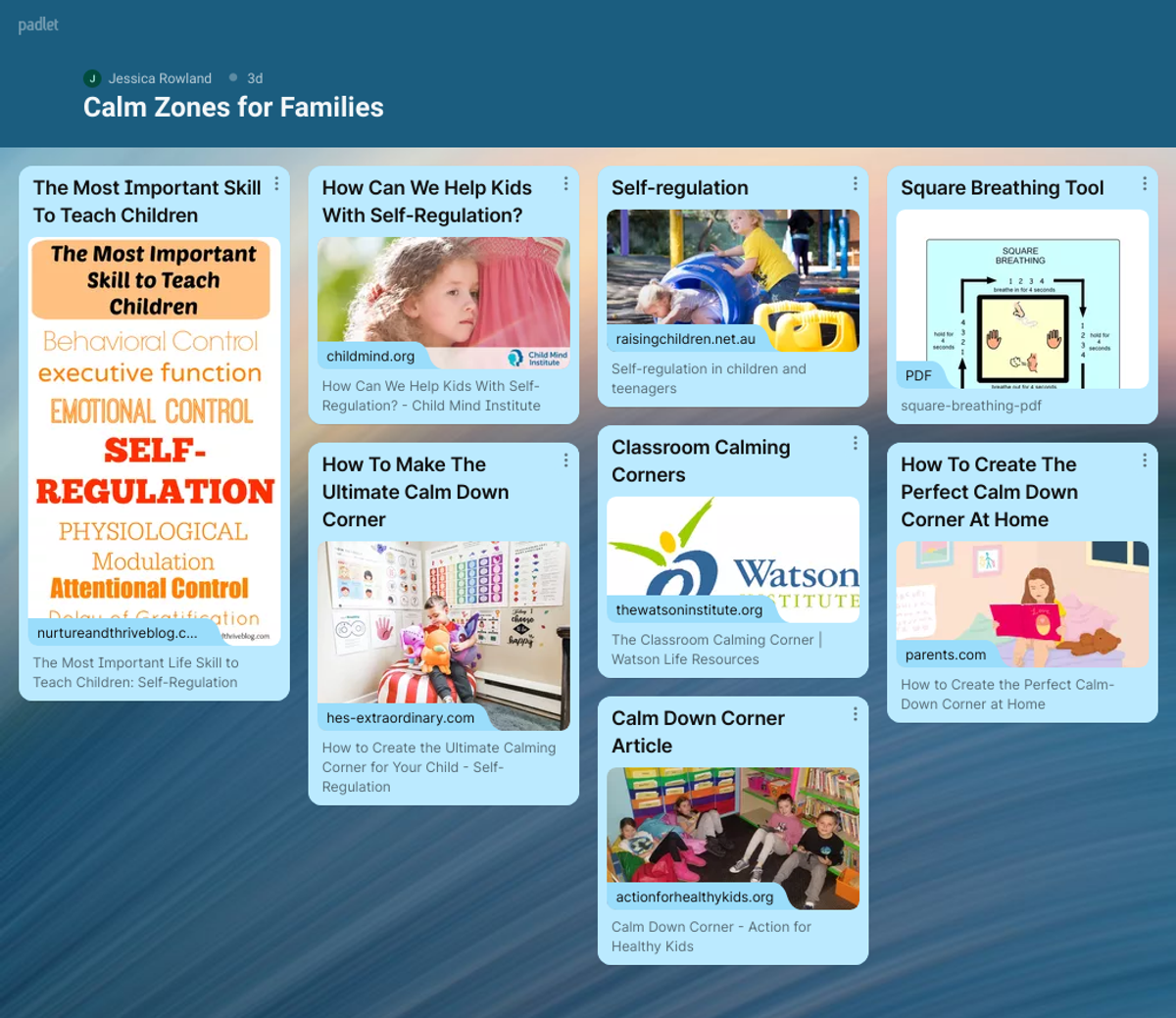Wellbeing

Calm Zones in the Classroom
Being able to calm ourselves when our emotions are running high is a skill otherwise known as self-regulation. Just like many other skills, we develop this ability over time and with coaching and guidance. Students need to develop self-regulation skills and strategies that work for them. If you think about a time when you were upset, you may have used many different coping strategies to regulate your emotions, such as going for a walk, or reaching out to friends and family.
One of the ways we are supporting the development of self-regulation skills at Lakeside College is providing a ‘calm zone’ in each primary classroom. This presents students with a designated space to go when they begin feeling unsettled, anxious or their emotions are running high, as well as allowing them to practice strategies that are being taught in the classroom to help them regulate. When students go to the ‘calm zone’ they are able to practise techniques such as mindfulness, breathing and reflection. ‘Calm zones’ are available to all students as they can be used as a preventative strategy, as well as a place to begin to re-regulate big emotions.
If you would like to learn more about calm zones and their benefits, as well as how they can be implemented at home, you can find more information on the padlet link .
You will also be able to find some information on self-regulation: https://padlet.com/jessicarowland2/8g6hec99gkyfc2ni
Jess Rowland
Primary Wellbeing Coordinator
Exams = Extra care!
As we move into the exam period for our older students, some students may be feeling a bit more stressed than usual. Here are some tips to help your nervous exam candidates feel more confident and calmly overcome this challenging experience.
- Know the exam schedule - pop it on the fridge or in the family calender.
- Have a chat with your daughter or son about how they are feeling about the approaching exams and ask if there is anything you can do to support them - ensuring they have a peaceful study space or their favourite snacks around will help!
- Encourage students to look at their schedule and have realistic expectations of balancing extra study with activities that help relieve stress and promote health.
- Many students find they get sick as the stress builds - eat a rainbow of vegies and get enough sleep!
- Any study that happens after 11pm is useless - it’s better to sleep and be well-rested.
- Anything that happens after 11pm can happen after you finish school - it’s better just to go to sleep!
- Encourage your senior student to create a sensible study schedule - study in blocks of about 45 minutes, then take a 15 minute break to eat or take a walk around the block with the dog!
- Endorse a variety of study methods - flash cards, summaries, listening to Edrolo, completing pratice tasks. Mix it up!
Know that this pressure is going to pass - breathe, pace yourself and simply do your best. The purpose of exams is not just to test your knowledge, you learn about yourself so the next time is less worrying.
Have confidence - you have worked hard and need not fear being successful!
I wish all our students and families every success over the next few weeks.
Michelle Roberts
Years 10-12 Homeroom Coordinator

